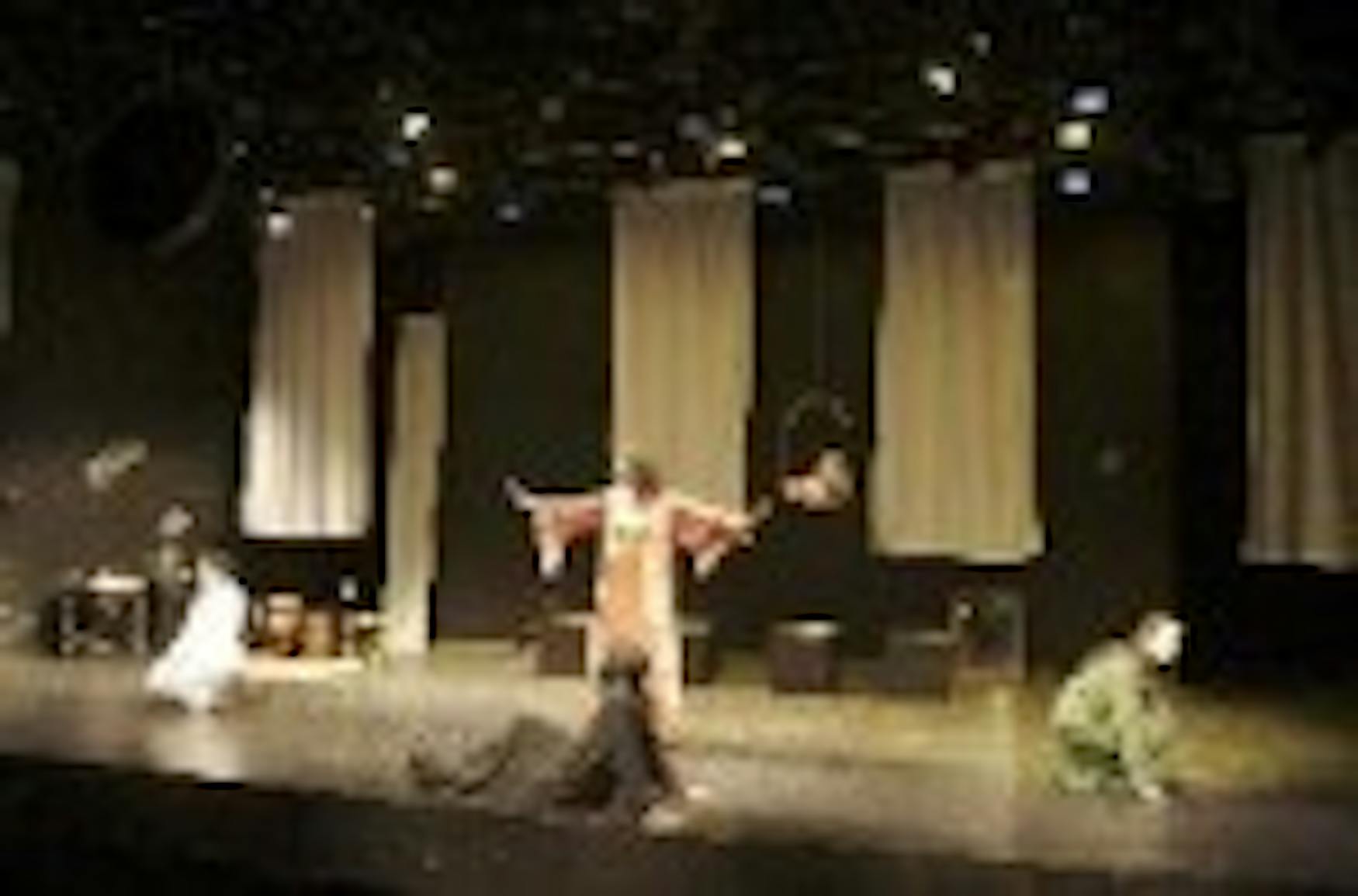The Black Eyed' brings a balanced eye to a controversial issue
With last semester's Voices of Palestine exhibit-and the controversy that followed its removal by administrators-still fresh in the minds of its audience, Spingold's Merrick Theater seemed draped under an uncomfortable cloud this weekend, when the Free Play Theatre Cooperative presented The Black Eyed. The work, penned by the American playwright Betty Shamieh, depicts four Arab women, each from a different historical period, as they meet in the afterlife. Produced here at Brandeis in only its second incarnation (it was first staged at the Magic Dinner Theatre in Martinez, Calif.), the story addresses intense issues: the nature of martyrdom, gender politics, modern intercultural issues and the Israel-Palestinian conflict. Some audiences members might have expected-especially given the tumult that resulted the last time a student displayed strongly opinionated art on this campus-for The Black Eyed's producers to temper the play significantly. But as the actresses took the stage dressed in the colors of the Palestinian flag, all fears of a censored performance evaporated.
But director Jennifer El-Far '07 did not want the play to antagonize anyone. "It's intended to push buttons but not to turn anyone away," she said. "I want the work to speak for itself and people to take it for what it is."
Even with its poignant subject matter and message, a play of this kind requires an effective delivery to make it stick, and fortunately The Black Eyed succeeded on every level. The story presented women from the modern-day Palestinian territories and their environs: Delilah (Meredith Ives '09), the biblical mistress of Samson, Tamam (Olivia Mell '09), who lived during the Crusades, Aiesha (Candis Bellamy '07), a suicide bomber, and the Architect (Alyssa Avis '07), a contemporary Arab-American woman.
Each woman told the story of her life, how they believe they have reached the afterlife, and whether they are in heaven, hell or neither. Through each character, a new issue is explored, whether it is Delilah's account of how her own people, the Philistines, used her beauty to seduce an enemy, or the Architect's debate over whether to follow her traditional Arabic customs or adapt to another culture. Each intriguing narrative is displayed by an equally captivating performance; each actress carried her respective mountain of dialogue with ease and the confidence that only comes with true belief and dedication to the material.
The protagonists performed in an amorphous black room that perfectly reflected the ambiguous nature of its location. The stage was largely empty save for a hookah, some surrounding stools and a number of wooden boxes that were effectively rearranged numerous times to recreate various scenes from each character's past.
It is important, in today's heavily biased world, to be able to gain the best, most diverse perspective possible, no matter how detestable you feel other views may be. With that in mind, the play could serve as a powerful catalyst for the Middle-East dialogue that Brandeis has been trying to promote. "It's not intended to take one side, or argue one side against the other. It does affirm the existence and humanity of the Palestinian people, without denying or dehumanizing Israel or the Jewish people," commented El-Far. "I don't feel like it promotes a one-sided opinion. I feel its pretty even on both sides. Unlike the art exhibition which only showed one side."
Ultimately, The Black Eyed succeeded not only as a theatrical production, but as a vessel for delivering an important message. It's often easy for a play with such ideas to forsake plot and presentation in favor of its teachings, but The Black Eyed remembered that the dramatic vehicle is as important as its passenger.



Please note All comments are eligible for publication in The Justice.